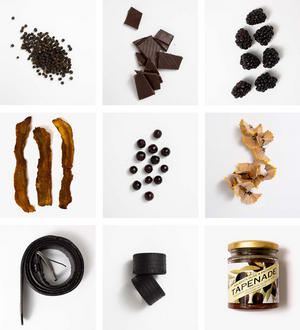2009 Côte-Rôtie, La Landonne, Domaine René Rostaing, Rhône
- Red
- Dry
- Medium Bodied
- Syrah
Ready, but will improve
- Robert Parker
- 93/100
- Jancis Robinson MW
- 18/20
Product: 20091116056
Description
Owning 25% of the ten hectares of La Landonne must be a source of great comfort to Réné Rostaing. Made from 40% Syrah, this is dark and dense, yet the fruit character and surprisingly supple nature of the tannins are fine indeed and can only presage greatness.
Berry Bros. & Rudd
Colour Red
Sweetness Dry
Vintage 2009
Alcohol % 13
Maturity Ready, but will improve
Grape List Syrah
Body Medium Bodied
Producer Domaine René Rostaing
Critics reviews
Robert Parker 93/100
Showing beautifully, the 2009 Cote Rotie La Landonne offers aromas of tapenade, bouquet garni, asphalt, blackberries, cassis, roasted meats and additional black fruits. More evolved and softer than the 2010, with a long, full-bodied finish, it can be drunk now and over the next 10-15 years.Robert M. Parker, Jr. - 23/12/2011
Jancis Robinson MW 18/20
For once, this seems milder than the Côte Blonde. Very well mannered and beautifully balanced. Succulent and very appetising. Complete and gorgeous. jancis_robinson_mw MW - JancisRobinson.com)
About this wine

Syrah/Shiraz
A noble black grape variety grown particularly in the Northern Rhône where it produces the great red wines of Hermitage, Cote Rôtie and Cornas, and in Australia where it produces wines of startling depth and intensity. Reasonably low yields are a crucial factor for quality as is picking at optimum ripeness. Its heartland, Hermitage and Côte Rôtie, consists of 270 hectares of steeply terraced vineyards producing wines that brim with pepper, spices, tar and black treacle when young. After 5-10 years they become smooth and velvety with pronounced fruit characteristics of damsons, raspberries, blackcurrants and loganberries. It is now grown extensively in the Southern Rhône where it is blended with Grenache and Mourvèdre to produce the great red wines of Châteauneuf du Pape and Gigondas amongst others. Its spiritual home in Australia is the Barossa Valley, where there are plantings dating as far back as 1860. Australian Shiraz tends to be sweeter than its Northern Rhône counterpart and the best examples are redolent of new leather, dark chocolate, liquorice, and prunes and display a blackcurrant lusciousness. South African producers such as Eben Sadie are now producing world- class Shiraz wines that represent astonishing value for money.
Find out more
